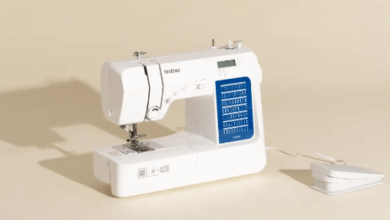Is Hemp Legal in Georgia? What Young Adults Need to Know

With changing laws and new regulations, it’s easy to be confused about whether hemp is legal in Georgia — and how those rules affect young adults. In 2024, Georgia significantly revised its hemp laws. If you’re under 21 or just trying to follow the law, here’s a breakdown of the key rules, risks, and rights that matter most.
What Is Hemp (Legally) in Georgia?
Under both federal and state definitions, hemp refers to Cannabis sativa L. that contains no more than 0.3% delta‑9 THC on a dry weight basis. Anything above that threshold is legally classified as marijuana in Georgia and subject to criminal penalties.
Georgia’s new hemp rules, passed as part of Senate Bill 494 and the Georgia Hemp Farming Act, took effect on October 1, 2024. These changes tightened regulatory standards and introduced new restrictions, especially for consumable hemp products (like gummies, tinctures, and vapes).
In short: yes, hemp is legal in Georgia — if it meets the 0.3% THC limit and complies with applicable licensing, testing, and age‑restriction laws.
What’s Changed Under the New Laws?
Here are some of the most important changes under Georgia’s 2024 hemp law:
1. Age Restrictions on Consumable Products
As of October 2024, it’s illegal to sell consumable hemp products (e.g., gummies, oils) to anyone under 21. Likewise, possession of these products by those under 21 is prohibited.
These new age restrictions are intended to protect minors from exposure to THC and unregulated products.
2. Licensing & Oversight by the Georgia Department of Agriculture
Retailers, manufacturers, processors, wholesalers, and laboratories handling hemp products must now be licensed or permitted by the Georgia Department of Agriculture (GDA).
These rules give the state more oversight over cultivation, processing, testing, and distribution.
3. Testing, Labeling, & Product Standards
Hemp products must be tested by a GDA‑approved lab, and labels must include testing results, THC content, warnings, and traceability (often via QR codes).
Limits on THC content now include not just delta‑9 THC but also THCA when decarboxylated (because THCA converts into delta‑9 when heated). That means products previously marketed under THCA claims may now exceed legal limits.
4. Bans on Certain Products
Some items are prohibited under the new law, including:
- Raw hemp flower or leaf sales — these are banned regardless of THC percentage.
- Certain food products containing hemp (e.g. baked goods or snacks) — as they may fall under “food” definitions not allowed under the new consumable hemp rules.
See also: Top 17 Strategies Litigation Lawyers in Las Vegas Use to Win Cases
Risks for Young Adults & Legal Exposure
Young adults (especially those under 21) need to be particularly careful under these new rules:
- Possession or purchase violations: If you’re under 21 and caught with consumable hemp products, even legal ones, you may be liable under Georgia law.
- Unlicensed or misbranded products: Selling or possessing hemp that doesn’t comply with the licensing, testing, or labeling rules can lead to misdemeanor or even felony charges under Georgia’s controlled substance statutes.
- Marijuana confusion: If a hemp product exceeds 0.3% THC, it becomes marijuana under Georgia law—and that’s punishable criminally.
So even though hemp is generally legal under certain conditions, exceeding those limits or failing to comply with regulations can trigger serious legal consequences.
How to Stay Legal & Safe
If you’re a young adult concerned about running afoul of the law, here are practical steps to protect yourself:
- Always check labeling and certificates of analysis
Only buy hemp products with clear lab testing showing THC content at or below 0.3%. Don’t trust vague or misleading packaging. - Stick to legal product types
Avoid raw hemp flower, certain food items, or THCA-heavy products that may exceed legal thresholds. - Buy from licensed retailers
Purchase from shops or online vendors that are licensed by the Georgia Department of Agriculture. - Know the age limit
If you’re under 21, it’s illegal to purchase or possess consumable hemp products in Georgia. - Be mindful while driving
Carry documentation (receipts, lab reports) if traveling with hemp products, especially across jurisdictions. Exceeding THC limits (or being suspected of impairment) could complicate matters even for legal products. - Get legal help early
If you’re charged with violation, an attorney who stays current with hemp, drug, and juvenile laws can make a major difference.
Bottom Line
- Is hemp legal in Georgia? Yes, hemp is legal in Georgia as long as it meets the 0.3% delta‑9 THC threshold and complies with licensing, testing, labeling, and other regulations.
- The new Georgia Hemp Farming Act / SB 494 introduced stricter oversight, licensing, age restrictions, and bans on raw flower and certain food items.
- Young adults under 21 are now prohibited from purchasing or possessing most consumable hemp products—violations may carry criminal consequences.
If you’re a young adult, parent, or curious consumer who needs help understanding how these laws apply to your situation, reach out to Ghanouni Teen & Young Adult Defense Firm. Their attorneys are experienced in Georgia’s evolving hemp and drug laws, and they can help you assess risks, protect your rights, or defend against charges.







